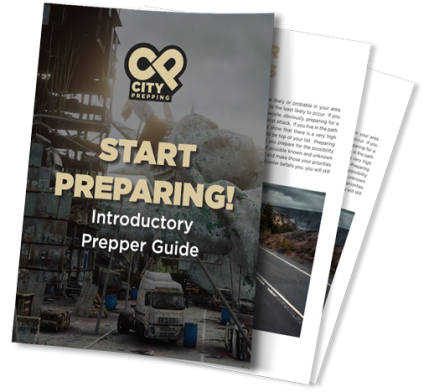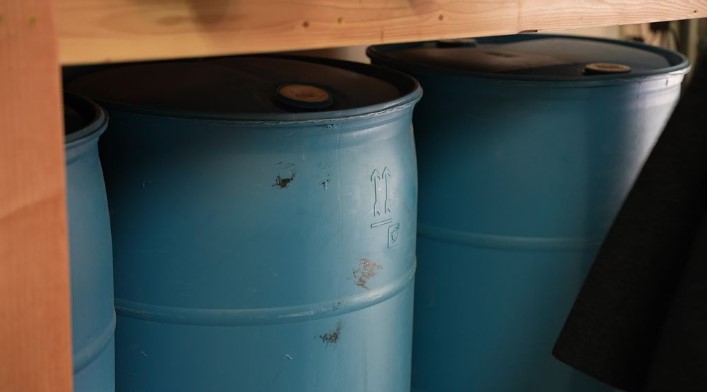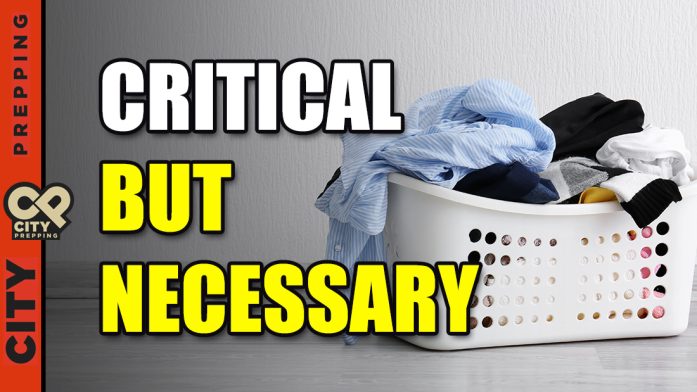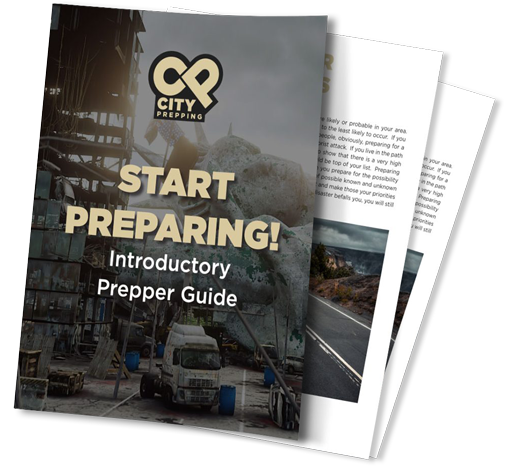 Here’s a lightning-fast look at some notable names closing locations in a neighborhood near you. After we cover these stores that are closing, we’ll discuss what you can expect to come next. Stick with me because what we share in a moment will really enable you to have a complete picture. There’s a lot that’s closing, so here we go.
Kohl’s is on Moody’s bankruptcy watchlist. Macy’s is shutting another 50 stores after closing more than 125 locations and laying off 2,000 employees last year. When retailers are in freefall like this and shutting stores in the hundreds, there are few, if any, examples of them ever getting back on their feet. Target is closing several locations, citing a decline in food traffic, an alarming rise in shoplifting, and dropping profits. 99 Cent Only store suffering also from inflation and high operational costs. The chain has had negative cash flow for three consecutive quarters. Office Depot will have shed over 300 locations by the end of this year. JC Penneys continues to struggle as it has for several years now and just announced that they will be closing even more locations this year.
Joann, the crafting retailer, experienced a boon of sales when the pandemic found everyone in lockdown and with time on their hands, but that’s changed now with the world opening back up. Declining sales have cut profits by 20 percent while its debt rose to over $21 million. This is forcing them to close stores and lay off hundreds of workers. Disney has been a giant in the entertainment industry for years, but they also have an extensive retail store operation. That may not be true for very much longer. They have closed over a hundred stores this year and last. Political battles, boycotts, dipping sales, and high expenditures all seem to be taking a toll on profits. The company is cutting 7,000 jobs. While the amusement parks may be doing well, retail, as is the case with retail everywhere, is struggling mightily.
All around the country, significant retailers are abandoning the mall setting and trying desperately to develop online retail operations or simply calling it quits. Bath & Body Works announced it will close 50 retail locations this year. Bed, Bath, & Beyond is closing 400 locations hoping to stay out of bankruptcy.
Banana Republic, Gap, and Guess are struggling to stay afloat in the retail apparel industry. Gap cut 500 corporate positions and even more jobs in Asia and left Russia after Russia invaded Ukraine. These retailers are reeling from a dramatic loss of sales and are closing hundreds of stores nationwide. Apparel retailers saw their sales plunge amid COVID-19 lockdowns, and many consumers who are returning to work after stints from working at home are reluctant to buy whole new wardrobes. Retailer Guess’ sales dropped 50% in the first quarter of this year. Supply chain and global distribution have resulted in decreased output from Asian nations while stock on hand has swelled from lack of sales. Many of the lease agreements for these apparel retailers are coming up for renewal, and it’s not likely they will opt to renew. In the apparel category, Foot Locker has to be included. The shoe retailer announced earlier this year that it would close 400 shopping mall locations.
COVID lockdowns of economies worldwide pushed the final naysayers into the online shopping world. It was also a death knell for brick-and-mortar locations where consumers have yet to return. One would think this would lead to high profits for shipping companies like FedEx and UPS, but soaring fuel costs have eaten those profits up.
It’s not just retail goods, either. Many restaurants and franchises are failing at an alarming rate. Believe it or not, Starbucks, the beverage behemoth, has had a difficult time with its supply chain. The cost of ingredients has also climbed. They’re closing hundreds of locations, and the CEO has warned there will be many more closings in the coming months. Burger King is closing 400 locations by the end of this year. BK isn’t the only fast-food chain suffering right now. McDonald’s has closed several corporate offices, is closing over a hundred restaurants, and laying off hundreds, if not thousands, of employees. McDonald’s also cites the pressures of legislation seeking to raise workers’ minimum wage.
If you are utterly dependent upon your local grocery store, you might want to develop a new strategy because major grocers are also suffering. Stop & Shop, Kroger, Whole Foods, Sprouts, Walmart, and Tops grocery chains are closing hundreds of locations. Poor profitability, supply chain problems, and double-digit inflation have moved the profits and losses bar too far to the negative. These massive stores are untenable when profits dive so dramatically. Recently Kroger merged with Albertsons in their struggle to survive. That means hundreds of locations will be closed, and thousands of jobs will be lost as they seek to eliminate overlapping stores in the same locations. Sprouts is closing 11 underperforming locations.
Many of these brick-and-mortar retailers will go the way of stores such as Radio Shack and Toys-R-Us. They will be forced to close their doors or beg to be bought out at rock-bottom prices. Some will diminish the significance of these recent store closures and the ones we will see in the hundreds, even thousands, later this year and simply indicate we have always had closures. On the surface, that’s true. Beneath the surface, however, we have never seen so many retailers, from grocers to clothing stores to franchise food establishments, tossing in the towel simultaneously.
WHAT’S NEXT?
Here’s a lightning-fast look at some notable names closing locations in a neighborhood near you. After we cover these stores that are closing, we’ll discuss what you can expect to come next. Stick with me because what we share in a moment will really enable you to have a complete picture. There’s a lot that’s closing, so here we go.
Kohl’s is on Moody’s bankruptcy watchlist. Macy’s is shutting another 50 stores after closing more than 125 locations and laying off 2,000 employees last year. When retailers are in freefall like this and shutting stores in the hundreds, there are few, if any, examples of them ever getting back on their feet. Target is closing several locations, citing a decline in food traffic, an alarming rise in shoplifting, and dropping profits. 99 Cent Only store suffering also from inflation and high operational costs. The chain has had negative cash flow for three consecutive quarters. Office Depot will have shed over 300 locations by the end of this year. JC Penneys continues to struggle as it has for several years now and just announced that they will be closing even more locations this year.
Joann, the crafting retailer, experienced a boon of sales when the pandemic found everyone in lockdown and with time on their hands, but that’s changed now with the world opening back up. Declining sales have cut profits by 20 percent while its debt rose to over $21 million. This is forcing them to close stores and lay off hundreds of workers. Disney has been a giant in the entertainment industry for years, but they also have an extensive retail store operation. That may not be true for very much longer. They have closed over a hundred stores this year and last. Political battles, boycotts, dipping sales, and high expenditures all seem to be taking a toll on profits. The company is cutting 7,000 jobs. While the amusement parks may be doing well, retail, as is the case with retail everywhere, is struggling mightily.
All around the country, significant retailers are abandoning the mall setting and trying desperately to develop online retail operations or simply calling it quits. Bath & Body Works announced it will close 50 retail locations this year. Bed, Bath, & Beyond is closing 400 locations hoping to stay out of bankruptcy.
Banana Republic, Gap, and Guess are struggling to stay afloat in the retail apparel industry. Gap cut 500 corporate positions and even more jobs in Asia and left Russia after Russia invaded Ukraine. These retailers are reeling from a dramatic loss of sales and are closing hundreds of stores nationwide. Apparel retailers saw their sales plunge amid COVID-19 lockdowns, and many consumers who are returning to work after stints from working at home are reluctant to buy whole new wardrobes. Retailer Guess’ sales dropped 50% in the first quarter of this year. Supply chain and global distribution have resulted in decreased output from Asian nations while stock on hand has swelled from lack of sales. Many of the lease agreements for these apparel retailers are coming up for renewal, and it’s not likely they will opt to renew. In the apparel category, Foot Locker has to be included. The shoe retailer announced earlier this year that it would close 400 shopping mall locations.
COVID lockdowns of economies worldwide pushed the final naysayers into the online shopping world. It was also a death knell for brick-and-mortar locations where consumers have yet to return. One would think this would lead to high profits for shipping companies like FedEx and UPS, but soaring fuel costs have eaten those profits up.
It’s not just retail goods, either. Many restaurants and franchises are failing at an alarming rate. Believe it or not, Starbucks, the beverage behemoth, has had a difficult time with its supply chain. The cost of ingredients has also climbed. They’re closing hundreds of locations, and the CEO has warned there will be many more closings in the coming months. Burger King is closing 400 locations by the end of this year. BK isn’t the only fast-food chain suffering right now. McDonald’s has closed several corporate offices, is closing over a hundred restaurants, and laying off hundreds, if not thousands, of employees. McDonald’s also cites the pressures of legislation seeking to raise workers’ minimum wage.
If you are utterly dependent upon your local grocery store, you might want to develop a new strategy because major grocers are also suffering. Stop & Shop, Kroger, Whole Foods, Sprouts, Walmart, and Tops grocery chains are closing hundreds of locations. Poor profitability, supply chain problems, and double-digit inflation have moved the profits and losses bar too far to the negative. These massive stores are untenable when profits dive so dramatically. Recently Kroger merged with Albertsons in their struggle to survive. That means hundreds of locations will be closed, and thousands of jobs will be lost as they seek to eliminate overlapping stores in the same locations. Sprouts is closing 11 underperforming locations.
Many of these brick-and-mortar retailers will go the way of stores such as Radio Shack and Toys-R-Us. They will be forced to close their doors or beg to be bought out at rock-bottom prices. Some will diminish the significance of these recent store closures and the ones we will see in the hundreds, even thousands, later this year and simply indicate we have always had closures. On the surface, that’s true. Beneath the surface, however, we have never seen so many retailers, from grocers to clothing stores to franchise food establishments, tossing in the towel simultaneously.
WHAT’S NEXT?
 OK, so we ran through all the stores failing, and this is the important part that you need to pay attention to. Individually, any one of these retailers failing isn’t a cause for alarm. That’s not the case here, though. There are too many failing together last year, this year, and likely into next year to dismiss it. As we have pointed out on this channel before, there has been a worsening commercial real estate bubble that experts are claiming will be far worse when it eventually pops than the 2008 housing market crash that previously tanked the economy. $2.4 trillion of debt will mature over the next five years, and there isn’t money to meet those debt obligations. Most of these retail closures will remain as vacancies. Commercial real estate is very different than housing loans. Lowering rents to entice new tenants often requires a vote from shareholders who would rather take a loss on their taxes than eke out barely a profit. So, as you hear of a store closure, realize that beyond that company’s loss, and the loss to anyone in the community that relies upon that location, and the loss of jobs to the community, and the increase in unemployment numbers, there is also a property that will likely not be reoccupied in the immediate future. It will be bundled with other vacant processes and sold as a loss until the whole thing just fails one day. We covered this coming commercial real estate collapse in depth in another video I will link to in the comments below if you’d like to understand just how big of a problem this really is.
With each of these closures, too, as I just mentioned, the ranks of the unemployed increase. The retail industry is responsible for 25.8% of employment in this country. As it dries up, that economic engine sputters to a seizing halt. That’s not what you want to see happen when we are plunging deeper into a recession. Rising unemployment numbers are also not what retailers want. When job security is low, and money is tight from inflation, most people postpone purchases of items both big and small. That further slows the economy and, you guessed it, propels us further and deeper into the recession. People hold on to their money and try and stretch it out. This means they don’t go out to eat quite as much. Restaurants make up a mere 3 to 4 percent of the GDP, but workers from restaurant and bar establishments make up nearly 75% of the current unemployment numbers. Expect this sector to be particularly hard hit as well.
This year is different, too, because of some of the extra influencers. There’s a war in Ukraine that is costing the world billions of dollars. There’s a shift to online retailers and products over traditional, large-inventory, big-box stores. Even with this shift, however, consumers are consuming less. Costco, Amazon, Walmart, and Home Depot all have warned of slowing consumer demand this year. People haven’t been so uncertain about their collective economic futures in recent memory. That’s going to get worse in the next few months, as well. As we covered in our debt ceiling video last week, things are about to go south. As consumers hear more and more wrangling over spending, the debt ceiling, government waste, and recklessness, they will tighten their spending and slow the economy even further. More businesses will respond by downsizing their workforces. Treasury Secretary Janet Yellen warned on Sunday of a coming “steep economic downturn,” saying that “financial and economic chaos will ensue.”
She also said, “Our current projection is that in early June, a day will come when we’re unable to pay our bills unless Congress raises the debt ceiling, and it’s something I strongly urge Congress to do.” Congress and the president, however, couldn’t be further from a quick resolution on this. They’re currently at an impasse, raising the prospect of default. Legislative standoffs are common in a nation with deep partisan divides. The Republicans hold a thin majority in the House of Representatives, while the Democrats, led by Biden, control the Senate by a scant two votes. The stakes of the current debt-ceiling standoff are much higher than previous debates about budgeting, which have resulted in partial federal government shutdowns three times in the past decade. Even if a shutdown is averted, just the debate can lead to a further slashing of the United States top-tier credit rating and a significant stock selloff.
WHY YOU MUST PREPARE NOW
OK, so we ran through all the stores failing, and this is the important part that you need to pay attention to. Individually, any one of these retailers failing isn’t a cause for alarm. That’s not the case here, though. There are too many failing together last year, this year, and likely into next year to dismiss it. As we have pointed out on this channel before, there has been a worsening commercial real estate bubble that experts are claiming will be far worse when it eventually pops than the 2008 housing market crash that previously tanked the economy. $2.4 trillion of debt will mature over the next five years, and there isn’t money to meet those debt obligations. Most of these retail closures will remain as vacancies. Commercial real estate is very different than housing loans. Lowering rents to entice new tenants often requires a vote from shareholders who would rather take a loss on their taxes than eke out barely a profit. So, as you hear of a store closure, realize that beyond that company’s loss, and the loss to anyone in the community that relies upon that location, and the loss of jobs to the community, and the increase in unemployment numbers, there is also a property that will likely not be reoccupied in the immediate future. It will be bundled with other vacant processes and sold as a loss until the whole thing just fails one day. We covered this coming commercial real estate collapse in depth in another video I will link to in the comments below if you’d like to understand just how big of a problem this really is.
With each of these closures, too, as I just mentioned, the ranks of the unemployed increase. The retail industry is responsible for 25.8% of employment in this country. As it dries up, that economic engine sputters to a seizing halt. That’s not what you want to see happen when we are plunging deeper into a recession. Rising unemployment numbers are also not what retailers want. When job security is low, and money is tight from inflation, most people postpone purchases of items both big and small. That further slows the economy and, you guessed it, propels us further and deeper into the recession. People hold on to their money and try and stretch it out. This means they don’t go out to eat quite as much. Restaurants make up a mere 3 to 4 percent of the GDP, but workers from restaurant and bar establishments make up nearly 75% of the current unemployment numbers. Expect this sector to be particularly hard hit as well.
This year is different, too, because of some of the extra influencers. There’s a war in Ukraine that is costing the world billions of dollars. There’s a shift to online retailers and products over traditional, large-inventory, big-box stores. Even with this shift, however, consumers are consuming less. Costco, Amazon, Walmart, and Home Depot all have warned of slowing consumer demand this year. People haven’t been so uncertain about their collective economic futures in recent memory. That’s going to get worse in the next few months, as well. As we covered in our debt ceiling video last week, things are about to go south. As consumers hear more and more wrangling over spending, the debt ceiling, government waste, and recklessness, they will tighten their spending and slow the economy even further. More businesses will respond by downsizing their workforces. Treasury Secretary Janet Yellen warned on Sunday of a coming “steep economic downturn,” saying that “financial and economic chaos will ensue.”
She also said, “Our current projection is that in early June, a day will come when we’re unable to pay our bills unless Congress raises the debt ceiling, and it’s something I strongly urge Congress to do.” Congress and the president, however, couldn’t be further from a quick resolution on this. They’re currently at an impasse, raising the prospect of default. Legislative standoffs are common in a nation with deep partisan divides. The Republicans hold a thin majority in the House of Representatives, while the Democrats, led by Biden, control the Senate by a scant two votes. The stakes of the current debt-ceiling standoff are much higher than previous debates about budgeting, which have resulted in partial federal government shutdowns three times in the past decade. Even if a shutdown is averted, just the debate can lead to a further slashing of the United States top-tier credit rating and a significant stock selloff.
WHY YOU MUST PREPARE NOW
 These next few months, especially if the arguing over the debt ceiling drags on and on, will tell how dark things will become. Again, any of these alone, and I wouldn’t have cause for concern, but let’s list them out now that we know they’re all compounding upon each other.
These next few months, especially if the arguing over the debt ceiling drags on and on, will tell how dark things will become. Again, any of these alone, and I wouldn’t have cause for concern, but let’s list them out now that we know they’re all compounding upon each other.
- Multiple store closures
- Commercial real estate vacancies
- Commercial real estate bubble
- Unemployment numbers increasing
- Global recession
- Low consumer confidence
- Another debt ceiling debate leading to a possible shutdown
- Continued conflicts in Europe and the South China Sea
- Supply chain challenges









